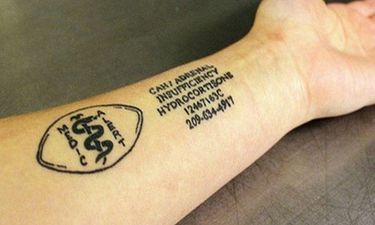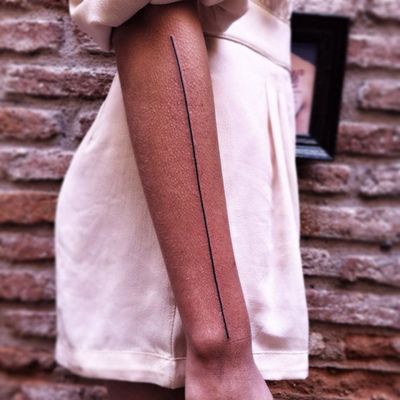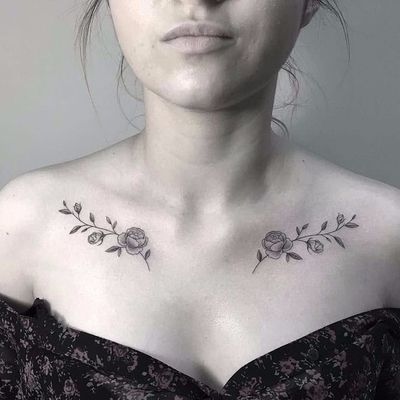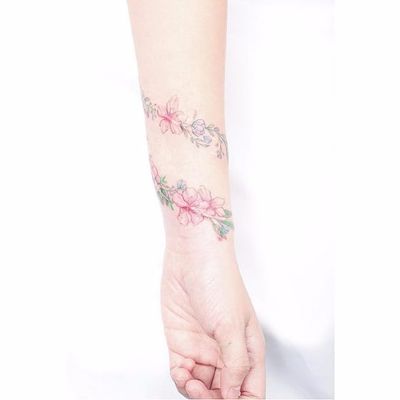While most of us get tattoos to express ourselves, others have been getting inked to potentially save their lives.
We've shown you in a previous post how useful medical alert tattoos can be in the long run. Getting medical alert tattoos does not mean that you're letting your condition become who you are, rather, aside from taking the place of a medical ID that can't be easily lost, it's a daily reminder for the wearer to take extra precautions as they go on their daily lives.

While the tattoo community is all for this idea for both the aesthetic and medical cause, experts' opinions are varied. They are seeing the good side so much as its downsides. We're not going to list down the same old ‘keeping it professional’ crap, though. That's not even half valid when it comes to vulnerable circumstances such as these. In matters of life and death, looking ‘professional’ should be the least of your concerns. But alas, it's a factor to consider, especially when you don't live in a Western country.

We listed down some of the most relevant aspects to consider when you're planning to get a medical alert or a medical ID tattoo:
There's no way of knowing how many people actually have medical alert tattoos
Changes of medical ID may be altered overtime either according to the individual's decision or due to the change of their medical condition
Some people may be allergic to the apparatus or chemicals involved in getting tattoos
Not at all times will medical tattoos be easily identified compared to medical bracelets or wallet cards
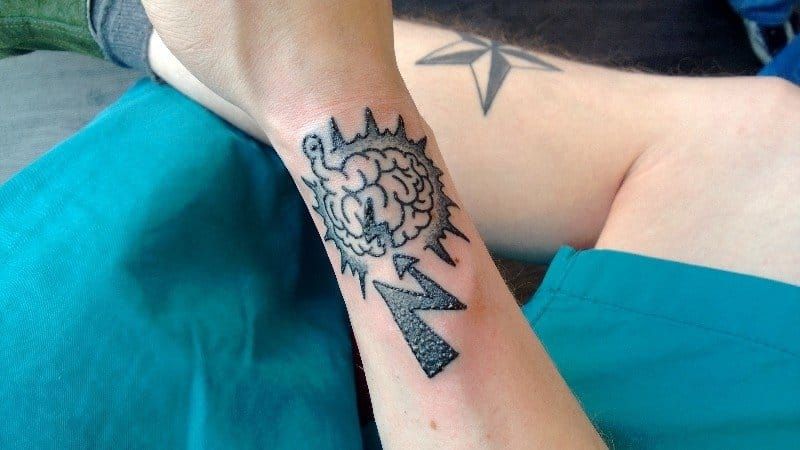
First of all, before getting a medical alert tattoo, you should be aware of the fact that the government has no official record of all the people who have authentic medical tattoos; meaning those individuals who keeps these tattoos for actual medical conditions rather than for personal statements or for reasons that aren't concerned with their own health. Some may have gotten tattoos resembling medical alert tattoos to make a statement or to honor a loved one, things that may be easily confused and might lead to uncalled-for situations.
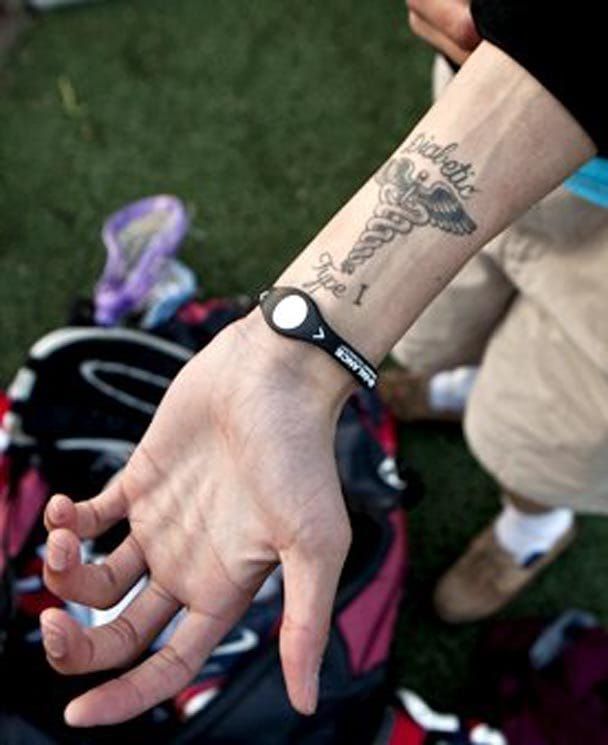
Although medical alert tattoos are common among allergy sufferers, getting tattoos might do more harm than good to certain people for previously unknown allergies might be triggered by getting tattooed either due to the different components present in ink or an allergic reaction to metal (tattoo machine) itself. The same way some people have gotten medical alert tattoos because of their allergy to the metal used in medical bracelets/necklaces.

But when worse comes to worst and the wearer goes through an episode, tattoos aren't always the first things people look for when they rush to someone's aid. It's usually the medical bracelet/necklace or the wallet cards. Which is why the location of the tattoo is very significant when getting a medical alert tattoo.
All in all, once you are able to think this through and weigh down the benefits and downsides of medical tattoos, you must consult your physician first before undergoing anything such as getting tattoos as far as your health is concerned.
All in all, once you are able to think this through and weigh down the benefits and downsides of medical tattoos, you must consult your physician first before undergoing anything such as getting tattoos as far as your health is concerned.

"If it's a medical condition that won't be going away, like my diabetes won't be, then [a medical tattoo] is worth pursuing because it's something that could help you," Chris Miller, a type 1 Diabetes sufferer shares.


For more information about medical alert tattoos, read more here.
Disclaimer: The facts that are stated here are based on accounts of those who have administered medical ID tattoos and those who have had them. The author merely tackled the subject of medical ID tattoos. Don't hesitate to point out if there are any errors that were missed out in the writing. Thank you.
Disclaimer: The facts that are stated here are based on accounts of those who have administered medical ID tattoos and those who have had them. The author merely tackled the subject of medical ID tattoos. Don't hesitate to point out if there are any errors that were missed out in the writing. Thank you.
